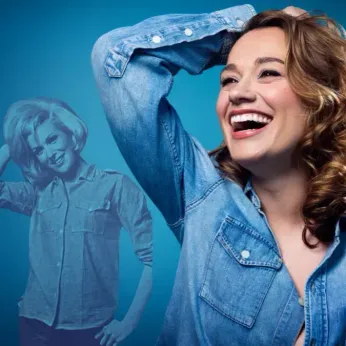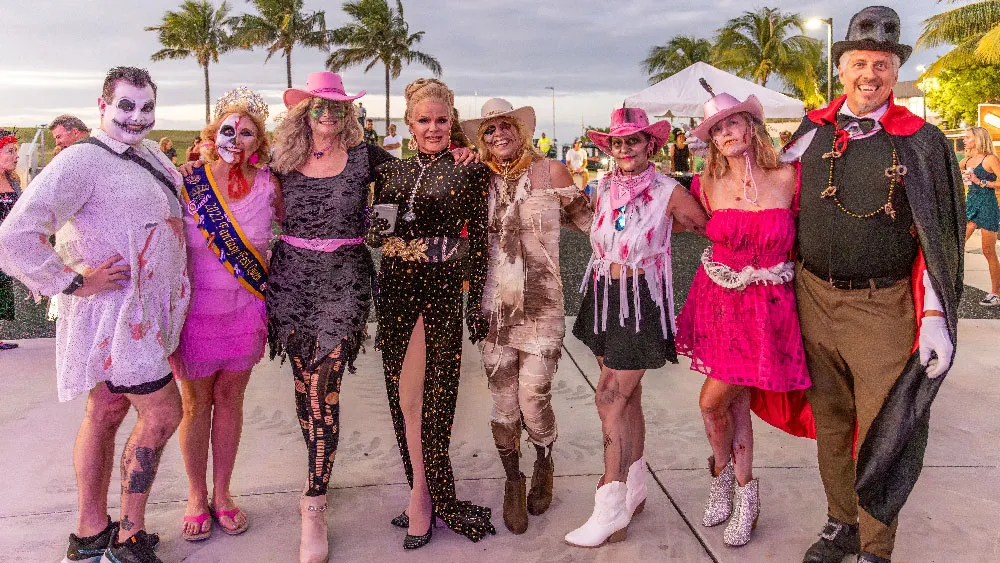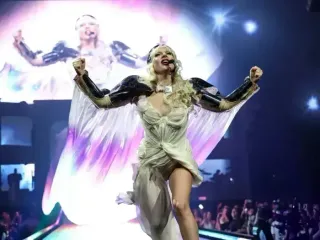
Aug 12
Lianne Marie Dobbs on honoring Dusty Springfield in her cabaret concert
Jim Gladstone READ TIME: 1 MIN.
When Lianne Marie Dobbs performs her cabaret concert, “The Windmills of My Mind…for Dusty Springfield,” at Feinstein’s at the Nikko on August 23, she’ll dig deep beneath hits like “I Only Want to Be With You,” “Son of a Preacher Man,” and “You Don’t Own Me” to probe the Springfield psyche.
While some consider Springfield an icon, the British singer born Mary O’Brien, is generally underappreciated. In part, that’s due to her untimely 1999 death from cancer at age 59.
But there’s little doubt that Springfield’s relatively low posthumous public profile is also due to the fact that, from the beginning of her career in the 1960s, she lived fairly openly as a queer woman.
“She never had a beard, she brought her girlfriends to music industry parties and events in L.A. and London,” Dobbs told the Bay Area Reporter in a recent telephone interview. But at the very beginning of her career, she didn’t feel she could be out to the public. Before long though, Springfield began, a bit equivocally, to acknowledge her sexuality in interviews.
“People say I’m bent…I’ve almost learned to accept it,” she told London’s “Evening Standard” in 1970. “I know I’m perfectly capable of being swayed by a girl as by a boy. More and more people feel that way and I don’t see why I shouldn’t.”

Discovering Dusty
Dobbs, an accomplished actress whose recent credits include a featured role on HBO’s “The Gilded Age,” grew up in the Bay Area and studied at A.C.T. She was only vaguely familiar with Springfield until being cast to play her in a 2017 workshop of the Shangri-Las bio-musical, “Leader of the Pack” at TheatreWorks Silicon Valley.
“Dusty was a small role, because she was just one of many influences on the Shangri-Las,” Dobbs said, “But I was going to sing two of her songs, and as part of my research I read her biography, ‘Dancing with Demons’ and ever since then I wanted to do a whole show honoring her.”
The book, authorized by Springfield’s estate, is co-authored by Vicki Wickham, one of the music industry’s most prominent behind-the-scenes lesbians, who managed both Springfield and Labelle. Wickham’s longtime partner is Labelle vocalist Nona Hendryx.
“I’ve always been draw to women who are absolute feminists,” said Dobbs, who is straight. “I don’t think Dusty would have used that word, but always she presented herself as a woman with a point of view; and a woman who didn’t need a male counterpart.”
In Dobbs’ show, developed with music director Ron Abel (who has collaborated with Bette Midler and Patti LuPone, among others), she explores the motivations and inspirations behind Springfield’s song selection and performance style.
Among a few lesser-known gems from Springfield’s repertoire that Dobbs features is “Sandra,” which tells the story of a woman whose ambition and potential are stifled by the social pressures that lead her to become a housewife and mother in lieu of pursuing a career. Further enhancing that song’s queer pedigree: It was written by Barry Manilow.
Strategic quirks
Dobbs, who is straight, particularly connected to “Dancing with Demons”’s discussion of Springfield’s mental health struggles and her strategies to keep them in check.
“They didn’t use these words back then, but it’s pretty clear that Dusty was what we would now call neurodiverse,” she said. “Dusty was neuro-spicy. She had performance anxiety, she probably had ADHD, and she figured out ways to manage them on her own. There was a story that went around at one point about her being on tour in Canada and locking herself in her hotel room and refusing to come out until somebody brought her a cat.
“Well, that’s not crazy,” Dobbs added. “She always had cats at home, but there was no such thing as emotional support animals back then. When she flew, she always had a stuffed animal with her. She knew what she needed to get over her anxiety and deliver a show that was up to her standards. And she was a perfectionist. Sometimes, before a recording session, she would show up five hours ahead of time and sing the songs to herself in a dark stairwell so she could get focused on her vocals before all of the other components were there.
Dobbs continued, “She had terrible vision but would never wear contact lenses on stage. Having the audience be a blur made her less self-conscious. If she was having trouble remembering lyrics, she would pinch herself and it would help her recall. As a performer, I feel like I can connect with all of this. She developed these mental tricks that worked for her, and I’m celebrating them in this show. That’s why I chose to name it after her song ‘The Windmills of My Mind.’”
Empowerment across eras
In the show, Dobbs also speaks admiringly of her subject’s humanitarian instincts, recounting a 1964 tour of South Africa during which Springfield, in direct contradiction of national apartheid laws, insisted on performing for racially mixed audiences and ended up being deported from the country.
“When reporters asked her what political statement she was making,” said Dobbs, “Dusty replied, ‘I’m not political. I’m just human.’”
Dobbs says that’s a sentiment she hopes to emulate in her own life, and certainly does so when performing one of Springfield’s early hits, Burt Bacharach and Hal David’s “Twenty Four Hours from Tulsa.”
“The song was originally recorded by Gene Pitney in 1963,” she explained. “It’s about a traveler who meets a woman on the road, falls in love at first sight, and decides to never return to his long-term partner.”
The lyrics include: All of a sudden, I lost control as I held her charms / And I caressed her, kissed her / Told her I’d die before I let her out of my arms.
On Springfield’s 1964 version, every “her” was changed to “his.”
“I won’t do it that way,” said Dobbs, “I’m letting Dusty use the pronouns she’d prefer.”
Lianne Marie Dobbs’ ‘The Windmills of My Mind…for Dusty Springfield,’ August 23, 8pm. $70. Feinstein’s at the Nikko, 222 Mason St. https://www.feinsteinssf.com/
https://www.liannemariedobbs.com/


